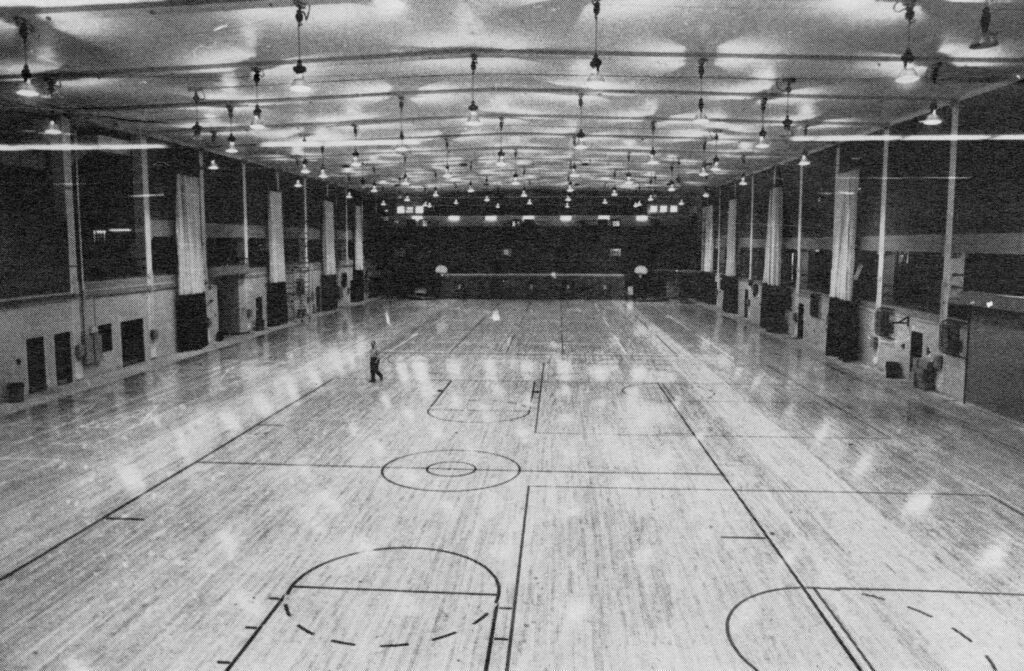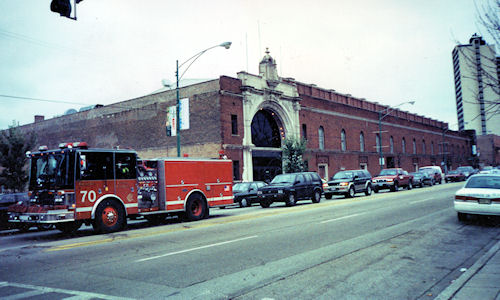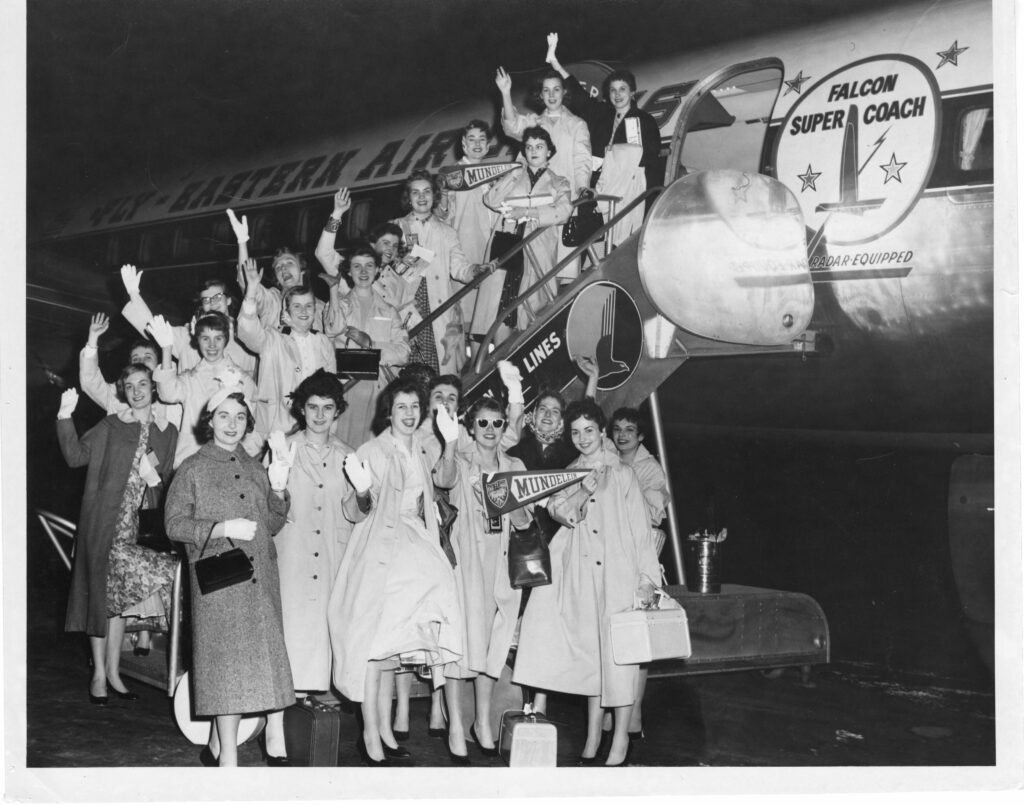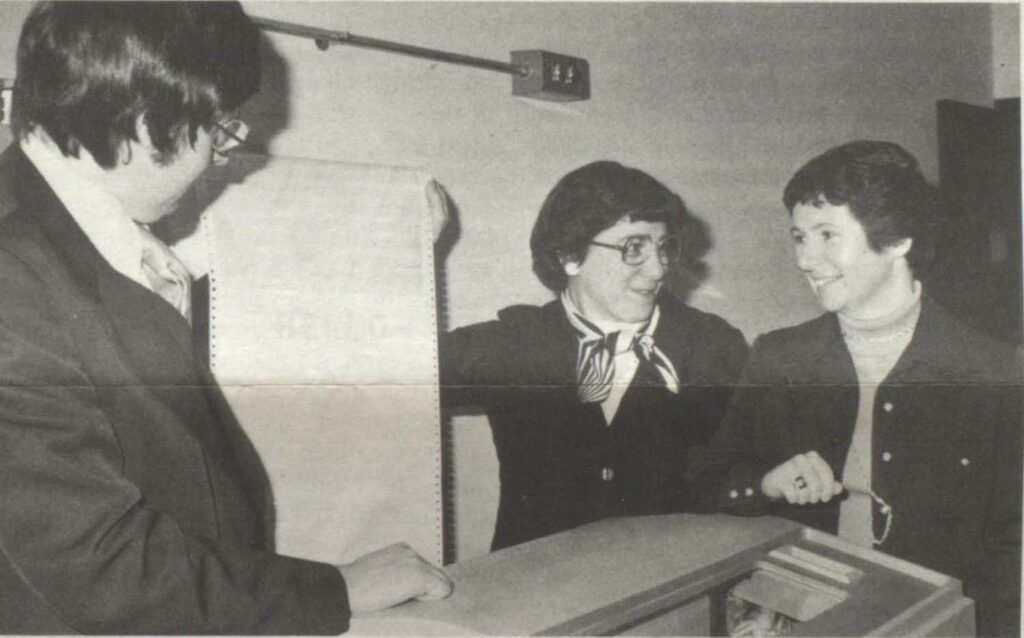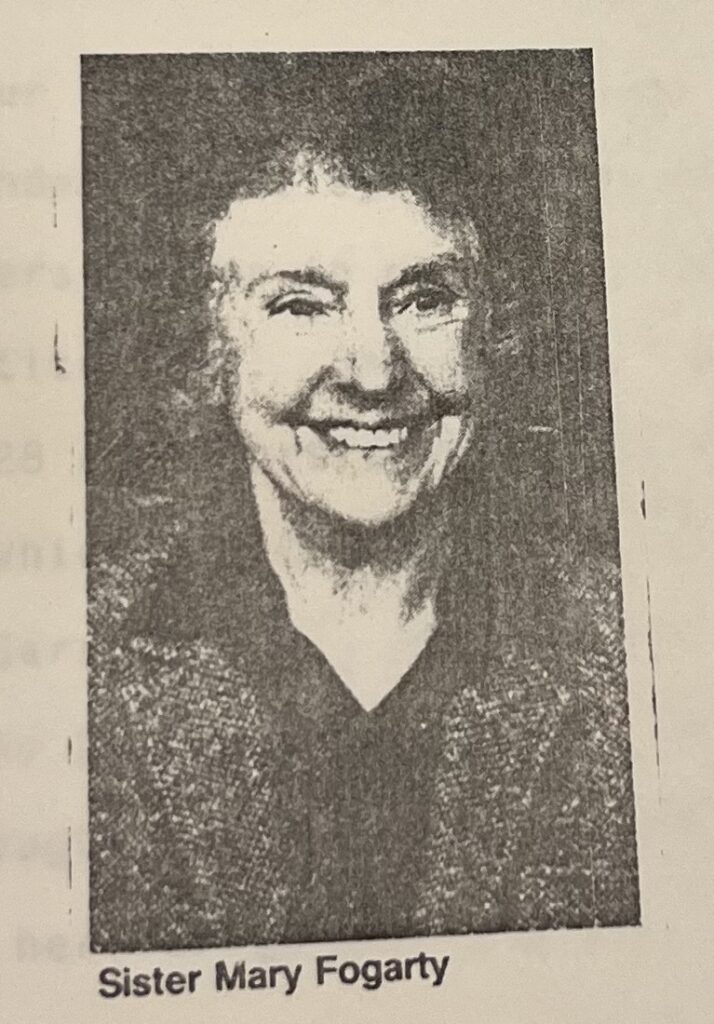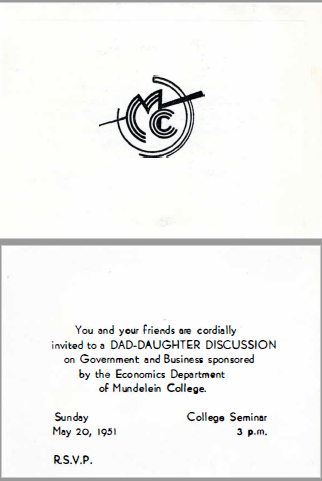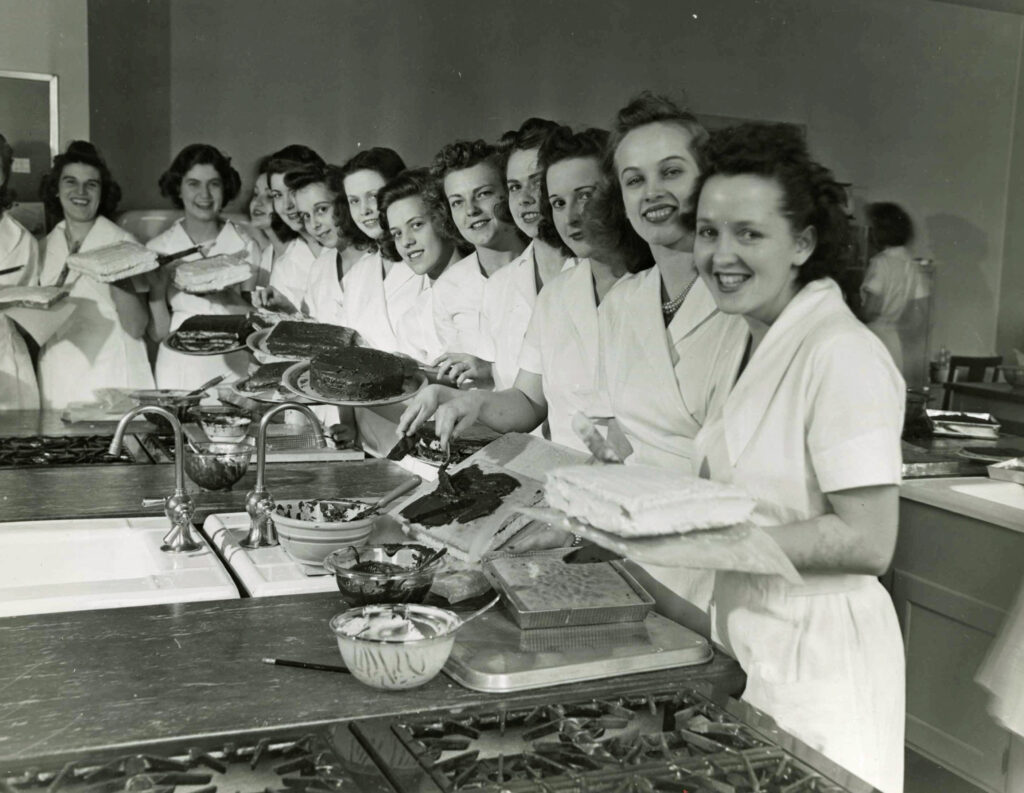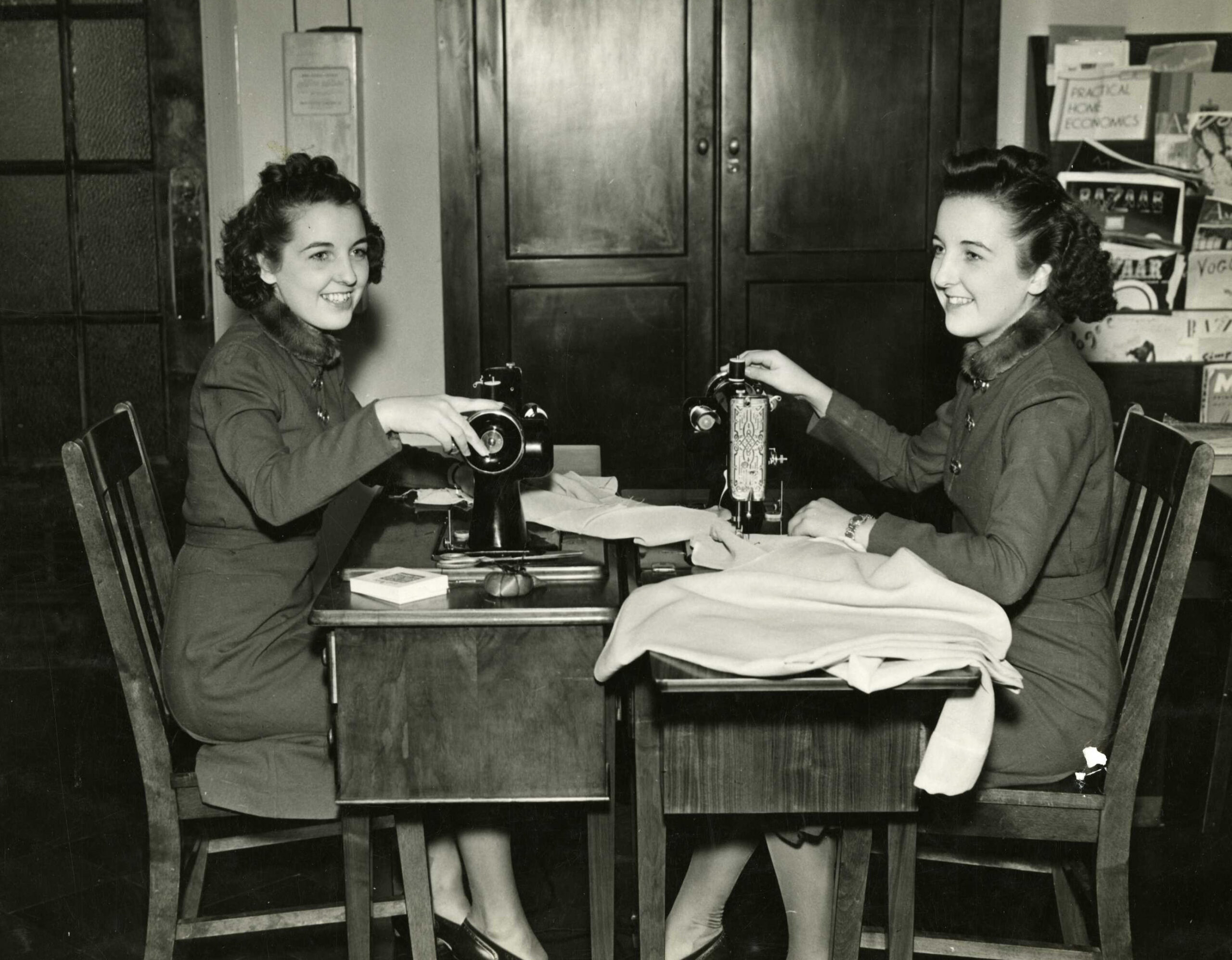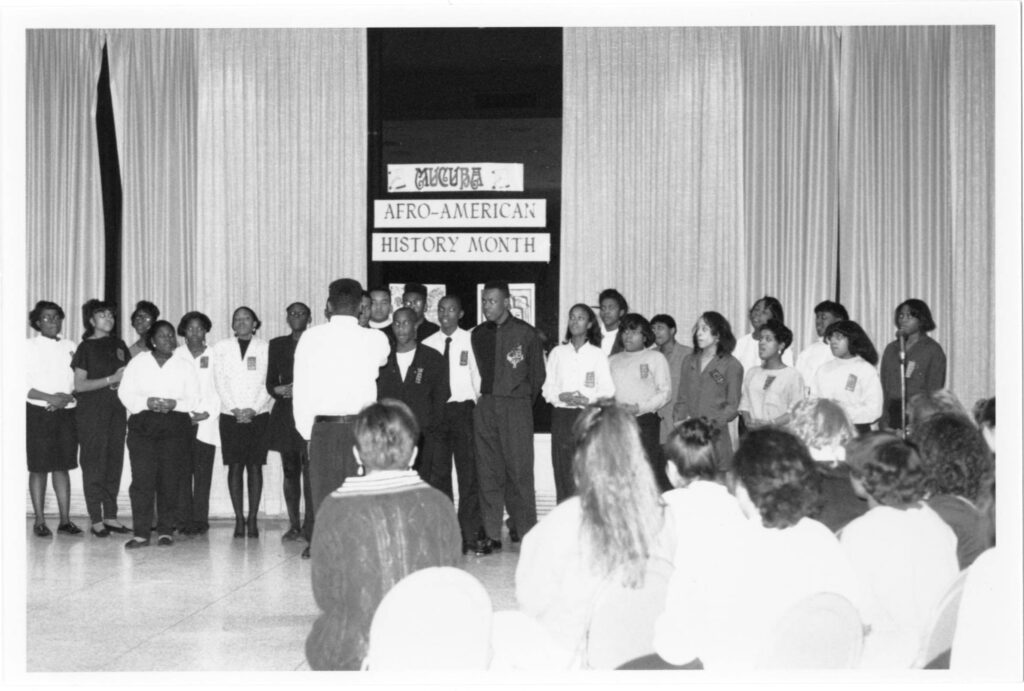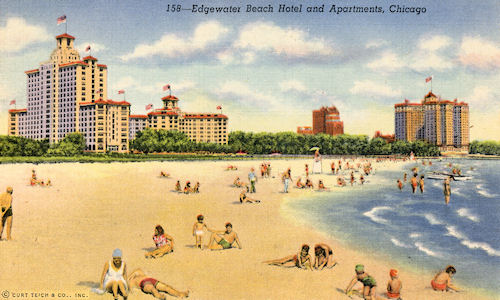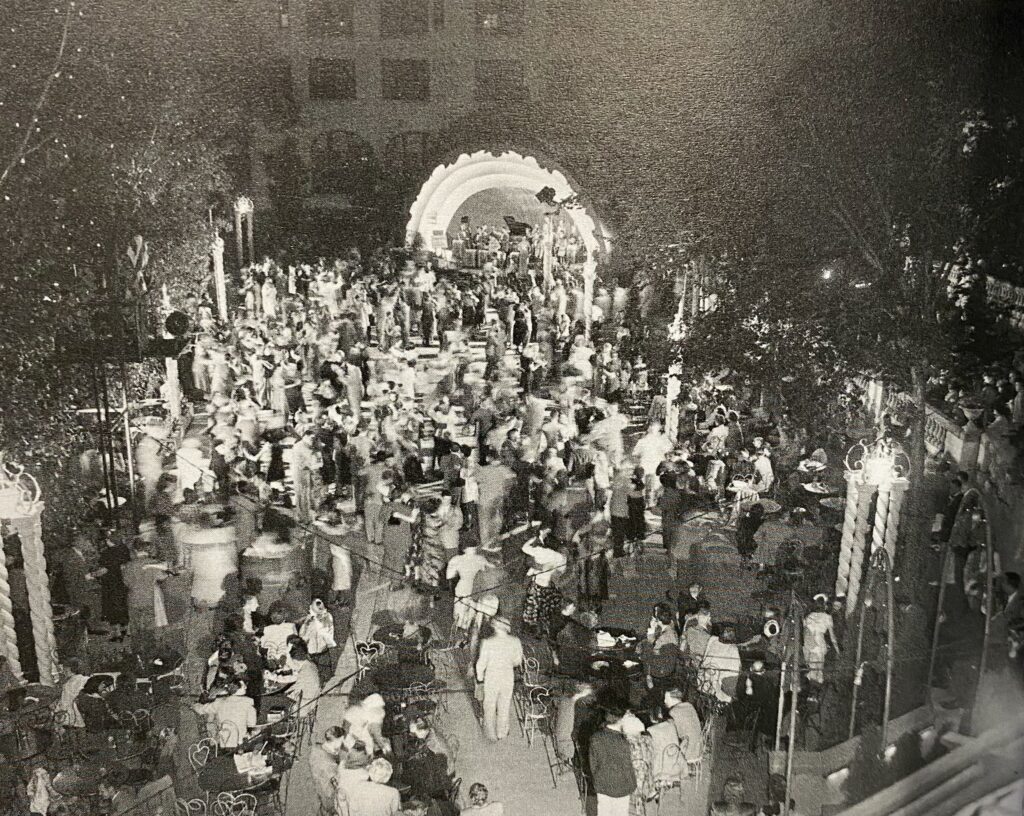The May Crowning ceremony originated in the 16th century as a papal tradition and spread as a form of public veneration for the Blessed Virgin Mary until the mid-20th century, where it reached peak popularity in the United States.i The ritual was often celebrated in schools and parishes concurrently with Mother’s Day or First Communion ceremonies to celebrate the role of women in the Church.ii Young women were chosen from among their peers as most deserving of the honor of placing a crown of flowers atop a statue of Mary. The ‘May Queen’ and her attendants would dress in white and process around the campus or church grounds while other students, teachers, and parents gathered to watch and sing devotional hymns.

May Crowning ceremonies were celebrated at Mundelein College* from the early 1930s through the mid-1960s. A 1942 planning bulletin concludes, “Remember that Coronation is an act of RELIGIOUS HOMAGE… And be dressed becomingly”.iii While in some years, Mundelein College students elected the worthiest representative from their peers to serve as the May Queen and her attendants, other years the prefect of the Sodality Club, the school’s lay religious group, was given the honor automatically.
Students would process from the Skyscraper building to the steps of the library (later known as Piper Hall), with the May Queen and her attendants leading the procession, all wearing white or light-colored dresses, and the seniors processing behind them in graduation caps and gowns.iv In later years, the ceremony moved to the auditorium to eliminate possibly inclement weather.v
Continue reading

